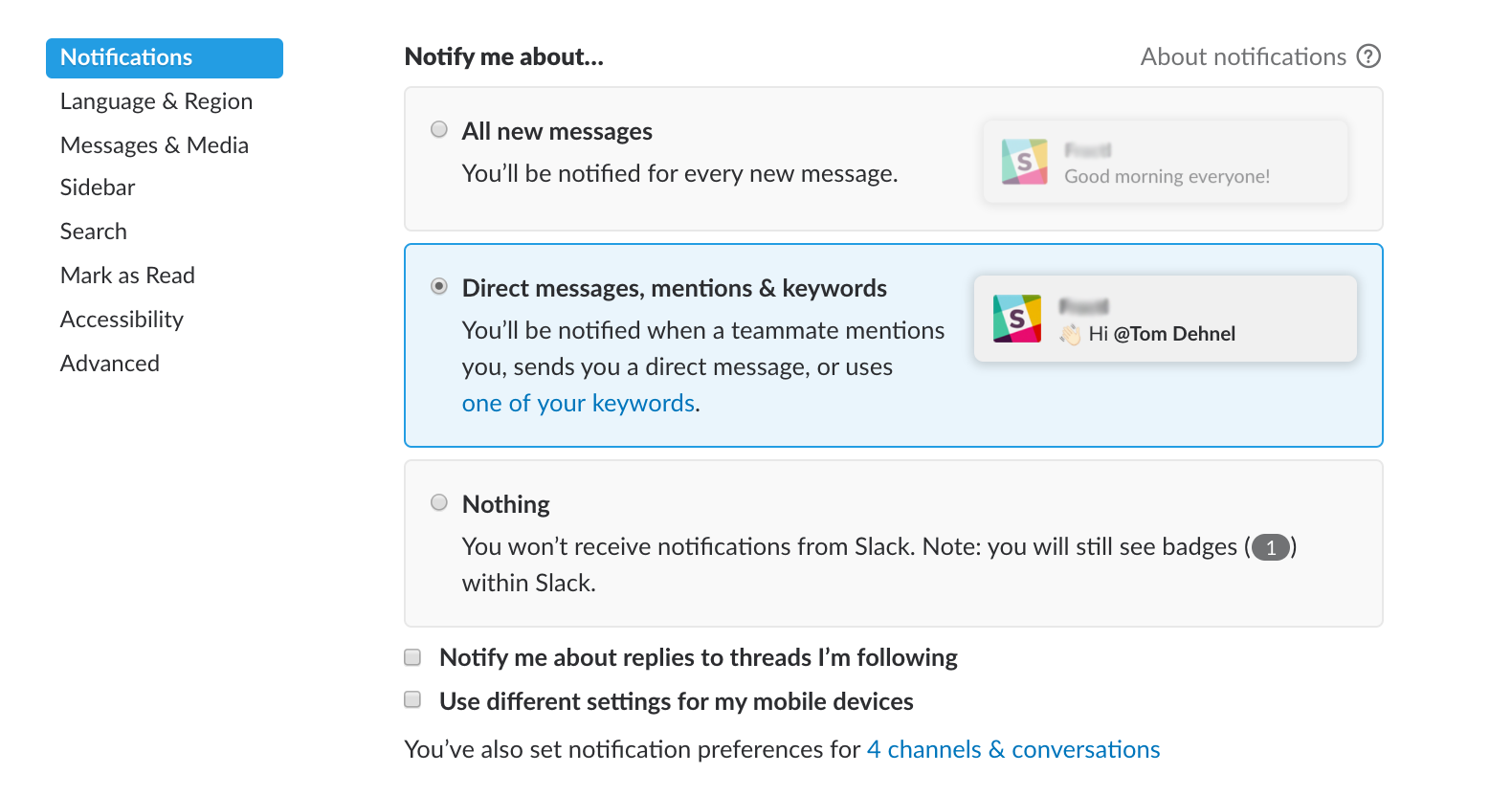I used to think time management was about designing the perfect schedule. It seemed like if I crack my own code and discover the optimal time to complete tasks throughout the day, I could tailor the perfect routine for myself and perform consistently.
But the day rarely sticks to the plan. The client makes a surprise request. Legacy code turns out to be spaghetti. PSD layers are jumbled. The competition releases an update. Deadlines shift.
No plan survives contact with the enemy.
My good friend Zvi Epner likes to say “life is messy.” He means things tend not to happen the way we expect them to. So our time-management systems have to be flexible. They need to adapt to the normal, organic swings of life.
So instead of trying to force-mold the day to my liking, I’ve been making big productivity gains instead by remaining flexible with my schedule, and limiting the ways I allow other people to use my time.
How did it get so bad?
No matter where you work, your experience as an employee typically starts out like this:
Before you’re even hired there’s a hard-to-shake urge to be as accommodating and flexible as possible. Did they propose an interview time that’s hard to meet? Sure, I can move a few things around. Did they reschedule the interview? No problem! I can make it work. Did they need you to stay for an hour longer than the scheduled time to meet the team? Absolutely! Thanks for the opportunity.
That’s normal in the beginning.
But after you get a few early wins and have shown your value, you have to make a conscious switch and decide how you’re going to protect your time.
What is time-wasting?
By time-wasting, I don’t mean chatting with your work buddies or taking a quick couple of minutes to check your personal email after lunch. These breaks are normal and necessary parts of the workday.
I’m talking about the more insidious form of time-wasting. The kind that looks like work.
- A coworker sends you a non-urgent deliverable in a Slack message, meaning you have to break focus that second or risk losing track of the notification.
- You’re CCed on an email with no context or next steps, meaning you have to decode the whole thread separately and come to your own conclusions. Often includes a single-word comment like “thoughts?” or “fyi”.
- Getting shared on a Google doc with no comment or explanation
Each of these tasks have one important thing in common: someone would like for you to respond in some way, but they haven’t teed you up for success. They’ve added a little bit disharmony and anxiety to your day because you have to stop what you’re doing immediately and try and guess their intention.
Which sucks because there’s a lot of research about the value of being able to concentrate for long periods of time without distraction. There’s even a name for distraction-free work time. It’s called deep work and it’s a game changer.
I started to think about the ways that my work could benefit from reducing distractions in my day-to-day. At my workplace, I realized the bulk of the distractions that popped up for me consisted of Slack messages and Asana emails/tags.
Optimizing Your Slack Usage
Slack messages can be total attention hogs because they pop up on your screen and steal your focus. Some people like being notified right away about things, but I hate it. Getting an instant notification about something that isn’t urgent is a huge bummer to me because it steals attention from what I was working on.
Protip: Slack notifications should really only be used for things that really, truly need to be done in the next 30 minutes. And memes. Lots of memes.
An easy win is to disable notifications for any Slack message that’s not a DM or specific mention of your name. That way I’m not getting distracted with a message about 🍩 Nani’s Donuts for the 37th time (sorry Nani).

You can also mute particularly distracting or popular channels, allowing you to go back and check in with those channels at a time when you can give them your full attention.
But the real key to using Slack efficiently is psychological. You have to be willing to set aside the desire to respond instantly when something isn’t truly urgent.
A news publisher needs some info on your company before they’ll write a story about you? That’s urgent. Coworker wants you to review a deliverable? That can almost always wait a little bit.
Don’t worry, your coworkers aren’t needy SOs. They can manage if you don’t respond right away while you finish up some work.

Prioritizing Tasks
A quick note on which tasks to do first. I’ll quickly prioritize task list in my head and tackle the most pressing ones first. Seems simple, but you have to really think about what is pressing. Typically for me, most pressing means “will hold up the most other people on this project.” In other words, if other people can’t work on their part of the project until I do my task, I prioritize that.
An example would be: I need to write a brief for someone to research a client domain for me. If that brief takes me 30 min to write and the researcher has a 5-hour research task ahead of them, I better get than brief done and then move on to another task which I can do while the researcher is, you know, researching. Otherwise, they won’t be able to do any work for me while I’m holding them up. That kind of thing.
Empathy
This style of time management is hard for some people because it involves asking others to work with us on a new way of doing things. As human beings, we have an innate need to avoid ruffling anyone’s feathers, and we feel bad about inconveniencing someone else by asking for things to be different.
That’s human nature, but we’re all here to produce good work so I think it’s worth it to make this change. And all we need to say is:
“Hey work friend, instead of X, it would really help me stay on track if you could do Y. Is that cool with you?”
That said, it’s important to remain empathetic to the fact that change takes time and effort. Others might not feel comfortable changing the way they work until they see enough other people changing too. They might feel confused because they see others using the old way still. Others still might feel like they will miss things in the transition to a new way of working. All totally valid.
Here it’s especially important to remain adaptable. Just like how we need to be flexible when plans change, we need to be considerate when dealing with others and their needs. If you get into a spot where you’re too rigid about your standards, that can be a really tough place to be in. So it’s completely fine to back off when you need to. It’s about making progress, not being perfect at it.
Conclusion
We all benefit as a team when we’re operating efficiently and effectively, and being considerate and respectful of each other’s time. Working in this way has made my day to day a lot more fun and easy to manage, and I really hope you’ll get teh same benefit.
Other Recommended Reading
https://jamesclear.com/productivity-tip

I run a small SEO consulting business in San Francisco, CA. I like to write a little bit and get in arguments with my friends. It’s the only way I can make sense of the world.